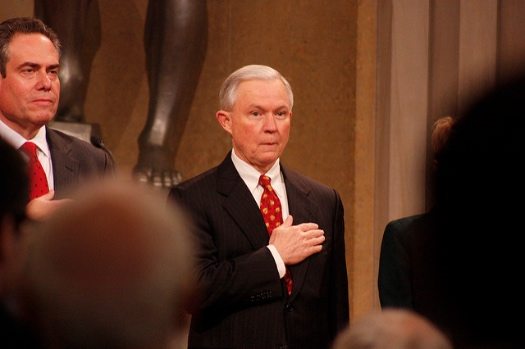
May 22, 2017; National Public Radio, “Law”
Attorney General Jeff Sessions has significantly modified his order that threatened sanctuary jurisdictions with the withholding of federal monies. A California federal judge, as many readers know, deemed the original order unconstitutional. In the new memo, both the definition of the offense and the scope of potential defunding as punishment are drastically curtailed.
The new memo defines sanctuary cities as only those that “willfully refuse to comply” with federal law and narrows the grants that may be withheld to a small pool of grants from the Justice Department and the Department of Homeland Security, rather than all federal funding for states and localities.
As was mentioned previously in a newswire, the ruling that enjoined the federal government from carrying through on its first order stated, “Federal funding that bears no meaningful relationship to immigration enforcement cannot be threatened merely because a jurisdiction chooses an immigration-enforcement strategy of which the president disapproves.”
Sign up for our free newsletters
Subscribe to NPQ's newsletters to have our top stories delivered directly to your inbox.
By signing up, you agree to our privacy policy and terms of use, and to receive messages from NPQ and our partners.
But even as he voluntarily narrowed the scope of the definition and punishments, Sessions’ new memo not-so-subtly threatens that the administration and Congress may “tailor” grants or impose additional conditions related to immigration on any jurisdiction seeking funding. Further, federal authorities may prioritize grants to places that honor federal requests to detain people in local law enforcement custody.
He also seems to be promising to shame offending jurisdictions:
While the Executive Order’s definition of “sanctuary jurisdiction” is narrow, nothing in the Executive Order limits the Department’s ability to point out ways that state and local jurisdictions are undermining our lawful system of immigration or to take enforcement action where state or local practices violate federal laws, regulations, or grant conditions.
—Ruth McCambridge












